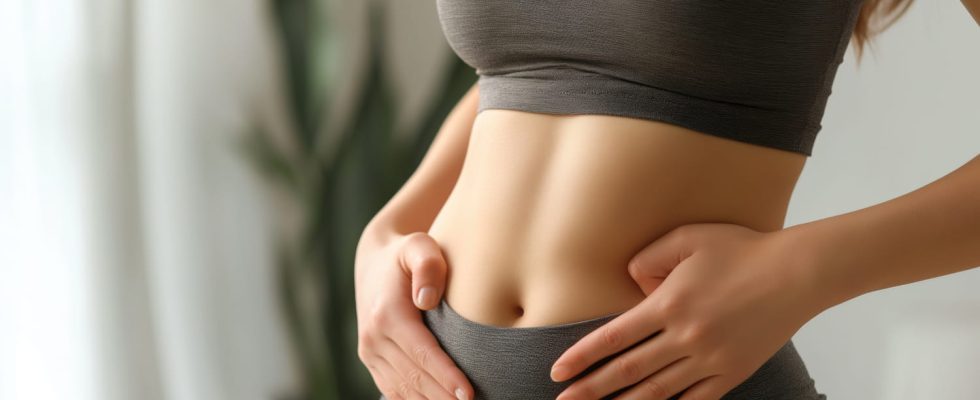There is the weight that we want to achieve for aesthetic reasons and the “healthy” weight which is very different.
There is the weight we want to achieve for aesthetic reasons and the “healthy” weight, in other words, the weight we are most likely to achieve. to stay healthy.” We tend to think that the “healthy” weight is the weight calculated according to a normal body mass index (BMI), therefore between 18 and 25. The BMI can give an indicative value of weight but it is a controversial tool because it does not take into account sex, age, the amount of muscle, fat or even the weight of bones. For me, “healthy” weight is what we call the balance weightin other words, the weight we carry if we respect our eating sensations (his hunger and satiety)“, explains Françoise Debuy, dietitian and member of the Reflection Group on Obesity and Overweight (GROS).
“Between the ages of 20 and 60, weight increases by an average of 8 kg in women”
This equilibrium weight is partly determined genetically and can be influenced by other factors such as sedentary lifestyle (or level of physical activity), dieting or age. Balance weight is not stable throughout its life. “As we age, balance weight naturally increases. A study showed that between the ages of 20 and 60, weight increases on average by 8 kg in women and 12 kg in men. From a physiological point of view, wanting to weigh the same at 50 as at 30 is not always possible“, she continues.
We can’t really calculate his “healthy” weight to the extent that it is based on listening to your body and your food sensations. If we eat while respecting our hunger and satiety, we will know the right amount of what we need to eat, the weight regulates itself and remains generally stable. When we are babies, we are connected to our food sensations. The problem is that in our society, we have lost this listening and we eat according to societal injunctions (diet culture or “it’s time to eat”) Or parental (who has never heard the phrase “finish your plate“?).
“The best way to find your balanced weight is not to diet”
“Often, food cravings occur because people deprive themselves or do not eat enough at a meal or have food cravings. linked to emotions, fatigue, stress. The best way to find your balanced weight is to avoid dieting and return to intuitive eating.“, insists Françoise Debuy. To help you respect your eating sensations and calm your relationship with foodhere are the questions to ask yourself:
- Am I hungry? To do this, rely on the physiological signals of hunger (gurgling in the stomach, feeling of hollowness in the stomach, fatigue, headache, etc.)
- Do I want to eat?
- At the end of the meal: Am I still hungry or do I still want to eat?
Is it the same as ideal weight?
The balance weight is therefore very different from the ideal weight. “This weight defined completely subjectively (often for aesthetic reasons) often corresponds to a physiologically unattainable weight goal or sometimes achievable if you follow a restrictive weight loss diet. But ultimately, these restrictive diets are often linked to an almost systematic weight gain (the famous “yo-yo effect”) and do not lead to lasting weight loss.“, underlines our interlocutor. These diets also have an impact on our physical health: on the bone, kidney and on our mental health with a risk of loss of self-esteem, depression or eating disorders.
Is it the same as healthy weight?
Fitness weight and healthy weight are often the same. If certain formulas allow us to calculate our fitness weight, this is mainly the weight with which we feel “good”which allows us to be in good health, concludes our expert.
